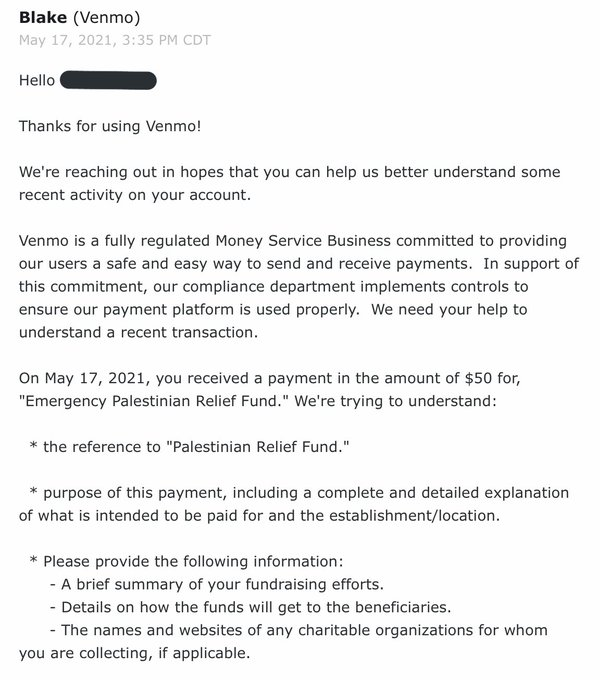Complicated politics have made it difficult to use traditional financial methods, opening the door for cryptocurrency.
Delayed Relief
A number of payment processors and banks are suspending or delaying payments to the Palestine Relief Fund, leaving observers to question whether traditional financial institutions can serve the requirements of the nation and its people.
The complications of sending money to Palestine was recently brought sharply into focus by tech publication Rest of World, which revealed that Venmo, a subsidiary of PayPal, was delaying transactions with the words “Palestinian Relief Fund.” According to Venmo the issue has arisen due to the US Treasury Department’s Office of Foreign Assets Control, which keeps track of countries and individuals under US sanctions. Palestine is controlled by the militant group Hamas, which is designated a terrorist organization by both the US and Israel.
Palestinian Relief Fund
The issue was first raised when Twitter user @princessmlokhia aka ‘Rami’ revealed that the company was questioning him over a transaction with the reference “Palestianian Relief Fund”. Rami was pooling money for the Palestine Children’s Relief Fund (PCRF), a US-based organization that provides medical supplies for Gaza. When his friend attempted to send money to him, Venmo halted the transaction.
As Rami explained:
“Anyone want to guess why @Venmo is asking for a detailed description of the purpose of payment for a donation I collected from a friend named “Palestinian Relief Fund”? Can we not even provide for our besieged people without being accused of terrorist support?”

In an interview with CoinDesk, Steve Sosebee, the president of PCRF, said Venmo was not specifically targeting the organization:
“This is not related to PCRF. Specifically, it’s related to the inability of Venmo to properly vet organizations.”
Other Ways and Means
It’s not only Venmo which discriminates against money transfers to Palestine; its parent organization, PayPal, also does not operate in Gaza. All banks in Israel prohibit payments to Palestine, while some international banks also place restrictions on transfers. Similarly Western Union does not operate in the vast bulk of Gaza, although it does have locations in Ramallah in the West Bank.
For crypto advocates, the solution seems obvious. While Palestine has not explicitly advocated using cryptocurrencies to skirt sanctions, there is some evidence that ordinary citizens may have already clued in to crypto. The first quarter of 2021 saw trading double on peer-to-peer crypto platform localcryptos as compared to the previous three quarters. Even so, total trading volume is still small, sitting below $1 million dollars a year. The uncensored nature of cryptocurrency lends itself perfectly to the restricted nature of relief in this situation.
Concluding Thoughts
Due to US sanctions, the traditional financial system does not serve the Palestinian state well. There is, of course, a ready-made solution in waiting, in the form of cryptocurrency. Bitcoin and other cryptocurrencies provide censor-free money, allowing anyone to make transactions without intermediaries. For ordinary people trying to survive in the bleakest of conditions, cryptocurrency is a life line that traditional finance can’t offer.
Source : bsc.news

Founded in 2020, BSCNews is the leading media platform covering decentralized finance (DeFi) on the Binance Smart Chain (BSC). We cover a wide range of blockchain news revolving mainly around the DeFi sector of the crypto markets. BSCNews aims to inform, educate and share information with the global investment community through our website, social media, newsletters, podcasts, research, and live ask me anything (AMA). Our content reaches hundreds of thousands of global investors who are active in the BSC DeFi space.
BSC NEWS is a private news network. All posts posted by this user belong 100% to bsc.news All rights are reserved to BSC NEWS for more information about BSC NEWS contact BSC NEWS HERE.



